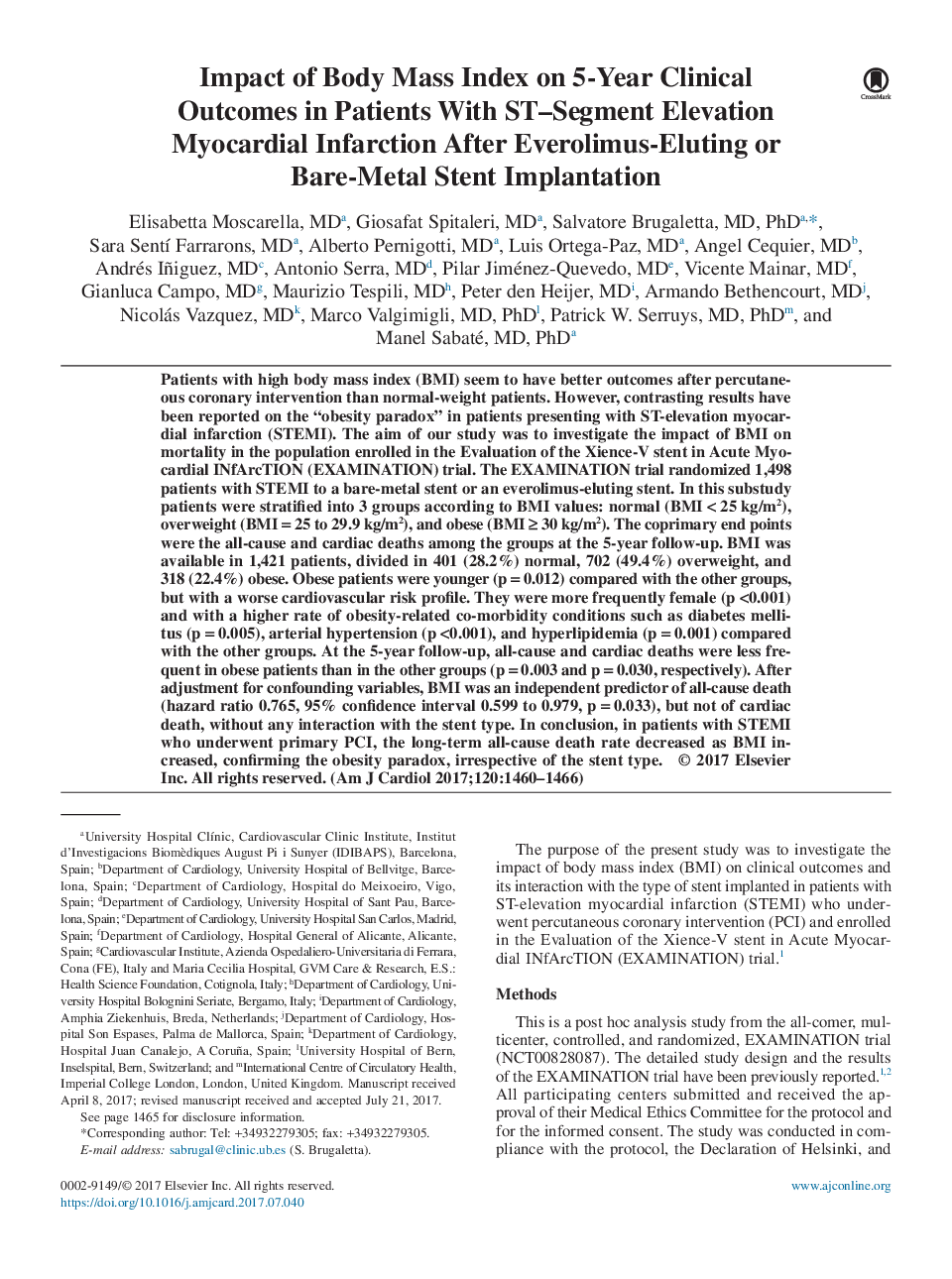| Article ID | Journal | Published Year | Pages | File Type |
|---|---|---|---|---|
| 8651675 | The American Journal of Cardiology | 2017 | 7 Pages |
Abstract
Patients with high body mass index (BMI) seem to have better outcomes after percutaneous coronary intervention than normal-weight patients. However, contrasting results have been reported on the “obesity paradox” in patients presenting with ST-elevation myocardial infarction (STEMI). The aim of our study was to investigate the impact of BMI on mortality in the population enrolled in the Evaluation of the Xience-V stent in Acute Myocardial INfArcTION (EXAMINATION) trial. The EXAMINATION trial randomized 1,498 patients with STEMI to a bare-metal stent or an everolimus-eluting stent. In this substudy patients were stratified into 3 groups according to BMI values: normal (BMIâ<â25âkg/m2), overweight (BMIâ=â25 to 29.9âkg/m2), and obese (BMIââ¥â30âkg/m2). The coprimary end points were the all-cause and cardiac deaths among the groups at the 5-year follow-up. BMI was available in 1,421 patients, divided in 401 (28.2%) normal, 702 (49.4%) overweight, and 318 (22.4%) obese. Obese patients were younger (pâ=â0.012) compared with the other groups, but with a worse cardiovascular risk profile. They were more frequently female (pâ<0.001) and with a higher rate of obesity-related co-morbidity conditions such as diabetes mellitus (pâ=â0.005), arterial hypertension (pâ<0.001), and hyperlipidemia (pâ=â0.001) compared with the other groups. At the 5-year follow-up, all-cause and cardiac deaths were less frequent in obese patients than in the other groups (pâ=â0.003 and pâ=â0.030, respectively). After adjustment for confounding variables, BMI was an independent predictor of all-cause death (hazard ratio 0.765, 95% confidence interval 0.599 to 0.979, pâ=â0.033), but not of cardiac death, without any interaction with the stent type. In conclusion, in patients with STEMI who underwent primary PCI, the long-term all-cause death rate decreased as BMI increased, confirming the obesity paradox, irrespective of the stent type.
Related Topics
Health Sciences
Medicine and Dentistry
Cardiology and Cardiovascular Medicine
Authors
Elisabetta MD, Giosafat MD, Salvatore MD, PhD, Sara MD, Alberto MD, Luis MD, Angel MD, Andrés MD, Antonio MD, Pilar MD, Vicente MD, Gianluca MD, Maurizio MD, Peter MD, Armando MD, Nicolás MD, Marco MD, PhD, Patrick W. MD, PhD, Manel MD, PhD,
